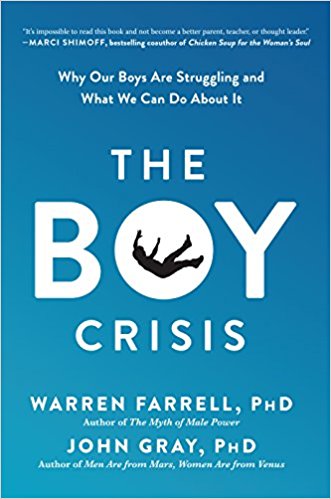
WANTED: One Big Brother
James, 8, has been waiting two years for a grownup buddy
The Hamilton Spectator, Hamilton, Ontario, By Susan Clairmont, May 6, 2006
James is lonely. He has a loving mother. Friends.
But what he really wants -- more than a pirate sword or pepperoni
pizza or video games or anything -- is a grown-up man to talk with.
The eight-year-old has been waiting two years for a Big Brother. And
he likely has another three to go.

James Kohne, 8, who has been waiting two years in hope of having a Big Brother, says 'It's frustrating. I always wanted someone I could talk to for a long time.'
That's how long it takes to get matched in our community. Children can turn into teens and into young men without ever making it to the top of the waiting list.
The problem is both starkly simple and overwhelmingly complicated: there are more boys wanting to be Littles than there are men wanting to be Bigs.
"It's frustrating," James Kohne says, brushing blond locks from his pale blue eyes. "I always wanted someone I could talk to for a long time. A Big Brother. I've got two controls for my video game. Maybe we could play together. I'd be very nice. I wouldn't bug them all the time like I do to my mom."
Jackie Kohne first started thinking about Big Brothers when she was pregnant with James. If the baby turned out to be a boy, she would sign him up for a Big Brother the first chance she got.
"I knew my son would be an at-risk child.
A lot of people would say that it's my fault. I live below the
poverty line. I am disabled by heart problems. I am not married.
That's all true, but don't take it out on my son. I want him to be a
productive member of society."
Just days after James turned six and became eligible, Jackie signed
him up with Big Brothers Big Sisters of Hamilton and Burlington. He
is still on the intake waiting list. No. 42 last time his mom
checked. A year ago he was 80-something. This list just gets James
screened and approved for the program. After that he goes on the
"active" waiting list which could have him wait another two years to
be matched, says Tracy Newthon, the organization's director of
services.
There are 153 boys on the intake list, 74 on the active list and another 25 boys who have been approved but are waiting to be added to the active list. There are 100 matched Big and Little Brothers.
The waiting list for Big Sisters isn't nearly so long.
"Women tend to volunteer more readily," Newthon says.
"The need for volunteers is always great and then we need a compatible Big Brother. And the older the child becomes, the longer the waiting list becomes because many volunteers prefer being matched to younger children."
Adults sometimes hesitate to volunteer because they worry about the time commitment. A few hours a week is what's expected of them and a promise to stay in the relationship for at least a year. As for costs, Big Brothers Big Sisters encourages free or low-cost activities so money isn't a barrier.
The other concern is liability. Adults -- particularly men -- are increasingly fearful of being targeted by allegations of abuse. That issue is dealt with extensively during the volunteers' training and screening. And every match is supervised closely by a case manager.
None of that translates for James though. He just wants a guy to hang out with and he doesn't have one.
James' dad was never in the picture.
"He's bald," James says helpfully. "That's all I know."
There is a wonderful uncle who James adores. But he has his own
children to occupy him. There are no other male role models in
James' life.
James lives in a subsidized housing complex on the East Mountain. His mom says they have good neighbours and friends there, but her son is being influenced by the wrong children. He is a bit of a follower and is hanging out with kids who have no respect for authority, particularly the police. They bully other kids. At school, where he is in Grade 2 with a B average, James has been in trouble for leaving school property and not listening to teachers. Jackie worries he may be on a slippery slope.
"I'm worried he's going to get in with the wrong crowd and by 13 he's going to be doing drugs and getting in trouble with the police."
The thing about James though, is he has a long way to go before he could be considered a full-fledged troublemaker. He is a delightful kid whose career choices include being a sculptor or "a guy who goes into jungles and captures big animals to put in zoos." He is polite and sweet and silly and has a close bond with his mom. He just had a test about telling time -- "I think I got the quarter past stuff right" -- and loves to play with Pokemon cards and create "abstract" art from Play-Doh.
Once, a year ago, there was a neighbourhood barbecue at James' housing complex. He met a firefighter there. They sat on a rock and talked for an hour. Just the two of them. About fires. And school. Stuff.
It was one of the best hours of James' life. He talks of it still.
Jackie has tried to find that firefighter, with no luck. She's called the fire department. She doesn't know the man's name, but he has three daughters. She wonders if maybe he would be interested in spending some time with a boy.
James cocks his head and squints his eyes as he considers what else he would like you folks to know. His last words though aren't about him at all.
"There's lots of little boys out there who are waiting and waiting."
Potential Bigs can call Big Brothers Big Sisters of Hamilton and Burlington at 905-525-3860.
To be a Big Brother, you must:
* Be at least 18
* Be willing to commit to a minimum of one year
* Pass a police check
* Provide personal references
* Attend an interview
* Attend a training session





